The Capillary Wave

# 3. The Framework For Law And Governance
A Capillary Wave Article Via: C M EDWARDS October 2023
The Basic Framework For Law And Governance In Most Countries
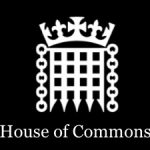
Here we will examine the absolute fundamentals of the system of governance. These articles are written in plain and simple English and will reveal to you the system which governs every aspect of your life. By reading these articles in ascending numerical order you will fully comprehend how the system of governance really works, and your place within that system currently.
For many of you as you read this article, some of what is explained here may be evidence of something that is very different from what you currently think and understand about what a country is, and how it operates upon you. I make no assumptions, we must start with the basics, so that we can then build on the level of understanding as we progress through these numbered articles which will give you a comprehensive and detailed picture about how you are being governed, and how these things affect you in your day to day life. You will learn things that were never taught to you at school or college, and you will understand why the world is the way it is.
This article will explore the framework for law and governance regarding the UNITED KINGDOM and other commonwealth countries. This information will almost identically apply to all countries being governed under: The Crown. These principles on law and governance will also apply to Americans. The whole world is governed by these same basic principles which we will explore together.
The information here will lay out the basic framework of how a country is set up to govern the people. We can explore in much higher resolution the various points made here in other articles linked to this one which can be found at the Home Page. This article will be the initial outline and basis for further articles and discussions to be built upon.
Wherever you are reading this from in the world your system of governance will run very similarly to this (maybe with a President instead of a Monarchy), and the main points regarding 1. Who makes the laws? and 2. What is a citizen?, will be exactly the same.
Before we start, let me state that there is more than one entity known as the UNITED KINGDOM. The UNITED KINGDOM can mean different things to different persons, in different subject matters.
Below is a good example of why we have to be very specific and diligent about what we are discussing, and how we stylise the words we use. In the below image from the: House of Commons Business, Energy and Industrial Strategy Committee report, the United Kingdom is expressed in three different styles of writing, and therefore with three potentially different meanings associated to the words: “United Kingdom”.
The report detailing United Kingdom matters at home and abroad, is talking about UK matters from three different perspectives and therefore stylises the word United Kingdom in three different ways to reflect the three different aspects of United Kingdom business. Each different aspect stylises the term UK differently, because it is talking about the UK from a different perspective in the report.
This is a great example and exercise to show why we have to be very diligent and very specific with similar looking words and lettering. “UK, UK PLC”, and “United Kingdom” in the report, all represent the same words; but, importantly they are stylised differently, and therefore may be different entities legally speaking, and as we progress through these articles you will learn why this is very important in law and show how this is extremely relevant to you and your daily life.
- Legal maxim – What is like is not the same, for nothing similar is the same.
Below is an image from Page 5. of the report which mentions these different UK entities:
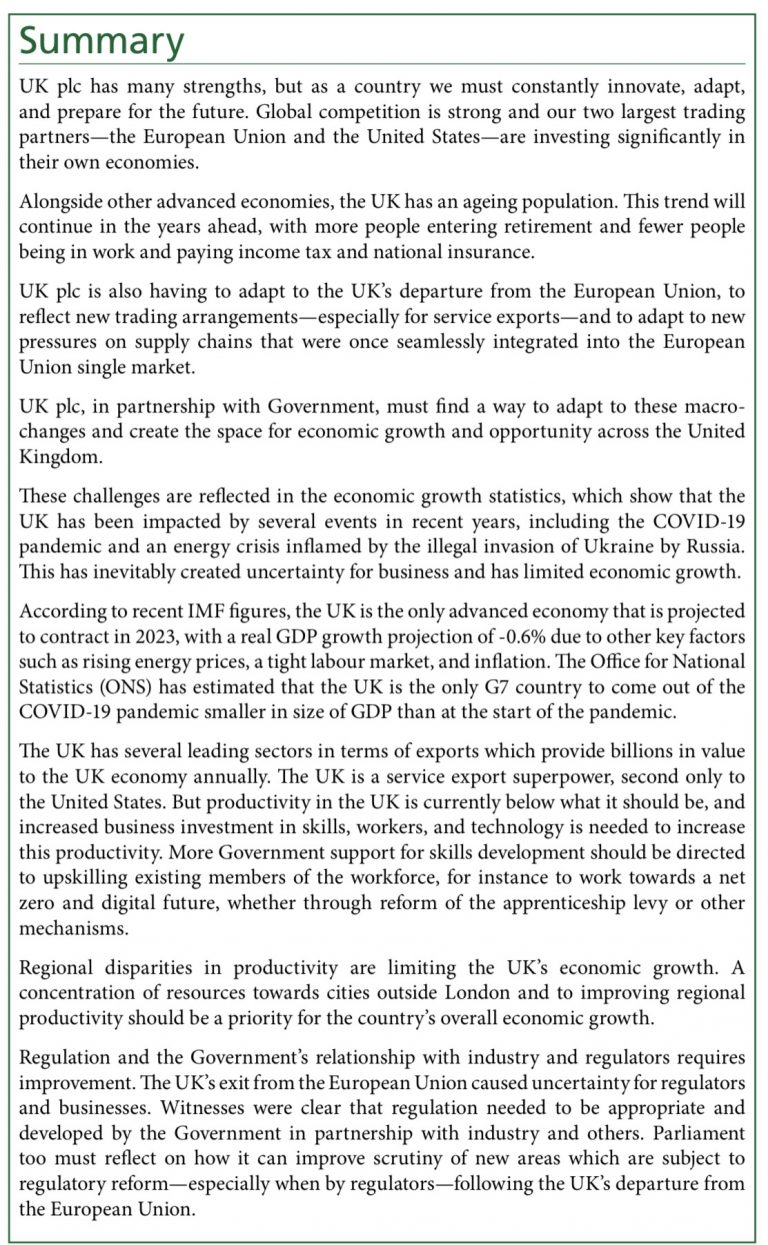
Although this report clearly mentions “UK plc” which is an obvious reference to a business, I believe this is an informal colloquialism, a way of expressing the UNITED KINGDOM’s commercial community (UK based global businesses) considered as a single organization; or the commercial interests of the UNITED KINGDOM considered as a whole. To be clear the country of the: UNITED KINGDOM is the title of a corporate body, a legal fiction, it is just not that: [UK plc] corporate body, as expressed in that report. These distinctions only go to prove my point about being very careful about how words are stylised, especially when it comes to matters of law and governance, and you will also learn here why this is very important to you too.
For the purposes of this discussion about the system of law and governance, we will be discussing the “UNITED KINGDOM”, which is the title of a country; with its Monarchial system of governance. Any word in all capital letters denotes a title of something, and you will see many examples of this on the spines of your DVD, and book collections at home. When discussing the country titled the: UNITED KINGDOM, we will always denote a title of something by using all capitals/superscription, as is recommended in many styles manuals. So let us get on and explore precisely what it means for you reading this to be a citizen of the body corporate titled: UNITED KINGDOM in law.
The UNITED KINGDOM (UK) is the title of a country, and a country is a state, and a state is a polity. A polity is a political entity, which is defined as a group of persons with a collective identity who are organised by some form of institutionalised social relations, and have a capacity to mobilise resources. A polity can be any group of persons organised for governance, such as the board of a corporation, or the government of a country.
So the UNITED KINGDOM (UK) is the title of a polity. This is why it is represented in the hyperlinked page by flags and heraldic signs. Great Britain is a landmass which is why it is represented in the hyperlink by a photograph of the landmass of an Island, and not any political flag, or the heraldry of a polity. A polity is a civil, and political organisation. Political and civil organisations, and other legal organisations such as corporations, are what is known in law as a legal fiction, and as such are a body corporate. This is precisely what it sounds like, a corporate body. Other body corporates are for example: TESCO, or WALMART. Another title or legal word for a body corporate is a legal person, as evidenced in the links provided, and a legal fiction is also known in law as a person. In short, a country is a polity, which is a person at law. [I will offer some legal definitions of person shortly].
A polity is what is known in law as a legal fiction. A legal fiction is a construct of the law for the purposes of the law. A legal fiction does not exist in reality, it exists only as a fiction of the law. In reality a legal fiction only exists in the mind which I will explain and prove shortly.
As mentioned above here are our two examples of a legal fiction: WALMART in the USA and: TESCO in the UK, are two supermarket store corporations. A corporation is a legal fiction, and part of the definition of “corporation” means, “united in one body, constituted as a legal corporation”. A legal fiction is also sometimes known as a legal person, or person in legal terms. A legal fiction / person can sue and be sued at law.
Some of you might be thinking to yourselves, “Hang on a minute, Tesco does exist in reality, it is not a fiction in my mind”. TESCO is a fiction of the law, as is a polity, or country. TESCO is the title of a company / organisation. When a title of a company is registered with the Crown you get a Certificate of Incorporation, and on that certificate, is the title of the company that has been registered, and a title of a company is registered in ALL CAPITAL LETTERS to denote a title. Do not confuse the physical shop that you walk in to get your groceries, with the legal fictional title of “TESCO”. Put another way, if you sue TESCO at law, “TESCO” is not going to turn up at court, because it does not exist in reality, a representative of the company will have to turn up in TESCO place, because TESCO does not exist, as it is a title, a legal fiction, a person.
Here are some useful legal maxims on this specific point. A maxim is an irrefutable truth. Legal maxims can usually be found in law dictionaries:
• A fiction is a rule of law that assumes something which is or may be false as true.
• Where truth is, fiction of law does not exist.
• There is no fiction without law.
• Fictions arise from the law, and not law from fictions.
• A fiction of law injures no one.
• Fiction of law is wrongful if it works loss or injury to any one.
Now we can clearly see from the [hyperlinked] evidence, that a country is a fiction of the law, and it exists only in your mind; just ask the persons of the former: YUGOSLAVIA, as it no longer exists in law as a country, and it no longer exists in many peoples minds.
Mo Farah, as pictured below, has the words “GREAT BRITAIN” on his shirt and not: UNITED KINGDOM. Mo Farah represented the people of Great Britain at the Olympic games, he did not represent a corporation / a legal fiction of the law. From herein I will be calling Great Britain; Britain.
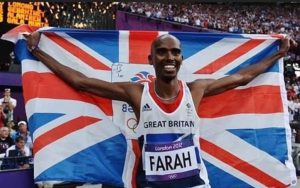
Britain is a landmass, and the UNITED KINGDOM is a corporate entity that has its headquarters at, and operates out of Britain. Just as TESCO does. That is why you may see on documents “The United Kingdom of Great Britain”. Maybe TESCO has on its documents “Tesco of Great Britain”?
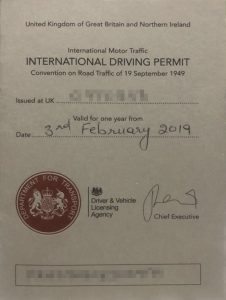
The example above of the title of the country of: UNITED KINGDOM operating out of Britain is the same the world over. At America for example, there is the corporation: WASHINGTON D.C , and out of that corporation, the UNITED STATES OF AMERICA is run. Americans might like to watch Kurt Kallenbach explain these concepts in more detail with his talk called: The Season of Treason.
In the case of of Canada, the difference is harder to spot, as the corporation has a title which matches the name of the landmass, However CANADA the corporation, is usually written with its letters all capitalised, and the name of the landmass is a noun: Canada. It is the same with AUSTRALIA, and Australia, and so on.
The most obvious example of a corporation acting as a country is the EUROPEAN UNION. This is a legal fiction, a corporation in law, and it is acting very much as a country. When you understand this, it may be easier to understand what “Brexit” and the EU referendum was all about. Effectively it was about the board of directors of: UNITED KINGDOM, (the Executive) wanting to do a corporate merger, with the: EUROPEAN UNION, but the “shareholders” (the citizens) kicked up a huge fuss, and went against the wishes of the board of directors. It is all corporate. It is all legal fictions. It is all about titles.
Lastly on this point is something Christians may wish to ponder; “The Church of England” is the Church of the state of England, and we have just discovered what a state is: a polity. Here I do a much more in-depth look at the Church of England in my article: Dear Christian Countrymen
- Index Jump To: Country
A jurisdiction is an area of justice. If you are a UK citizen, then your area of legislation and justice is controlled and administered under UK jurisdiction, at the Houses of Parliament at Britain. If you are a citizen of the USA and fly over to Britain, you will enter UK jurisdiction almost inevitably, and therefore you will now be in the UK jurisdiction of laws and justice; here is a good recent example of a US citizen getting tangled up in a different jurisdiction:
In the jurisdiction of the USA this boxing trainer can most likely carry a gun and ammunition in some states, however carrying a handgun and ammunition in the UK jurisdiction is illegal.

The two main areas of jurisdiction for any landmass on Earth, is the “legal” and “lawful” jurisdictions.
Below is a very technical drawing I did explaining what the two main areas of jurisdiction are at any given landmass.
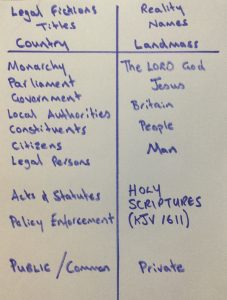
The above diagram lays out the two areas of law and governance available to each landmass. Each side of the diagram has its own law maker, however there is one Law Maker that oversees everything, as we now shall examine.
The Roles Of The Monarch
It should now be clear what a country is, and how it is separate and distinct from the landmass of which it is associated. On this particular landmass [Britain] the former Queen, and now the King, has a duty to rule over the persons of the UK and serve the peoples of the landmass. You could say the King has to wear two hats; and in fact that is precisely what happens in his coronation. He is given two crowns to wear at different stages of the ceremony. Each crown representing his differing roles of office. The first crown placed on his head is the crown from God, which is done privately behind some curtains [as directed in The Bible], as the commentator explains in the video clip below, of the Queens coronation. The second crown is the Imperial [Roman] Crown relating to the country and the rule thereof. Those observant ones of you will notice these subtle differences in the Queens’s coronation from the link below:
An image of the transcript from the Queens Coronation.
Source of photograph and transcript:
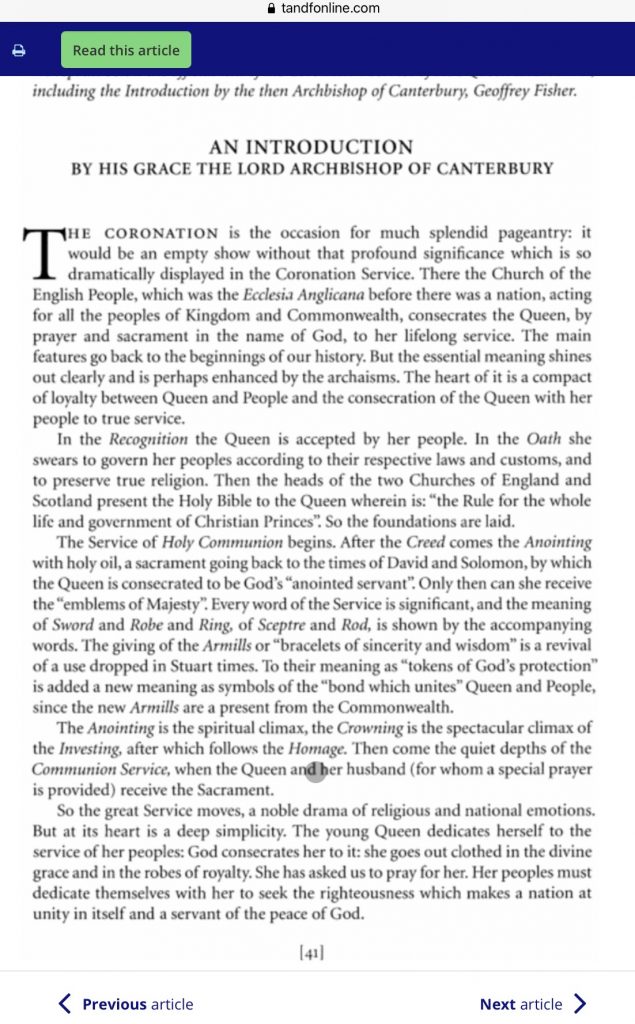
It is clear that the first crown the Queen receives is the crown from God, and the second crown is called the Imperial Crown. The first crown reflects the Monarch’s duties to serve God’s peoples of Britain, and the second crown reflects the role the Monarch has: to rule over the persons of the: UNITED KINGDOM – to be “no respecter of persons”. The Monarch is a “servant of God” and a servant for His people, and with his or her other hat [crown], the Monarch is a ruler over the corporate UK persons and citizens. Listen carefully to the terminology used in the coronation. It reflects what was just stated. You can also read the coronation transcript from the link above, which is very powerful and well worth your time examining. A must for anyone who is serious about understanding how they are governed.
Every year the Monarch’s top ministers and officers meet at Westminster Abbey to mark the start of the Legal Year. Here is the service sheet for the Legal Year service held at Westminster Abbey:
- Westminster Abbey Legal Year Service
- Source of Photograph:
Judges Mark The Start Of The Legal Year
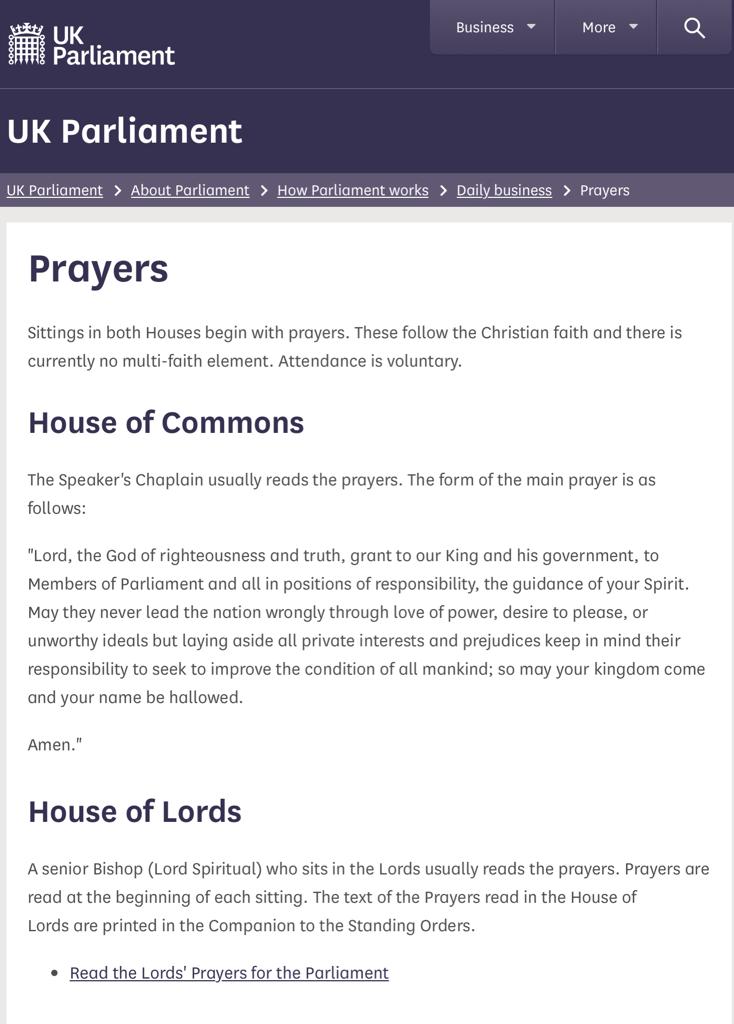
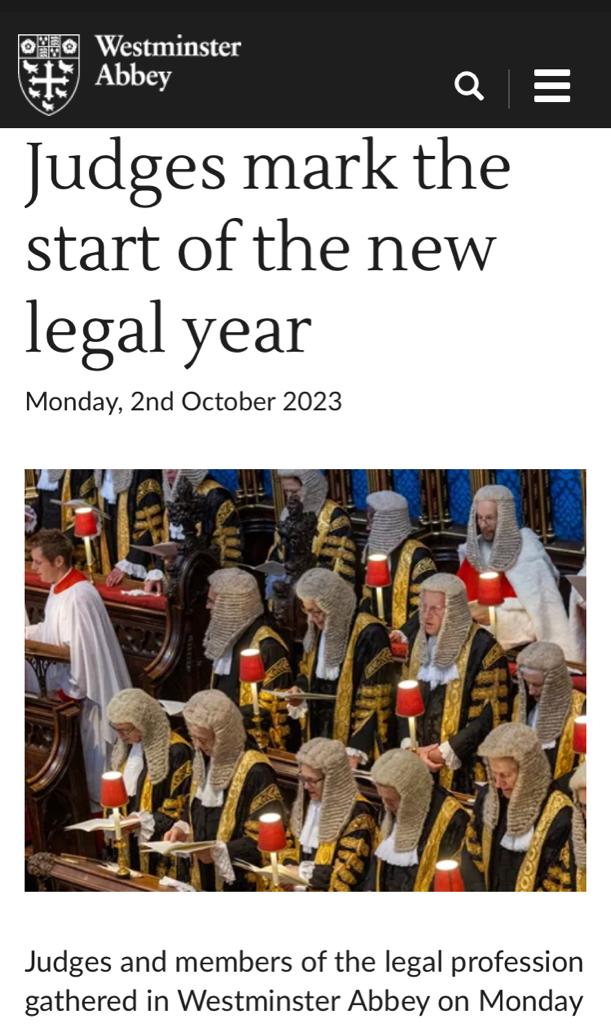
At the start of the Parliamentary year Members of Parliament (MP’s) swear an oath to God:
At the start of each day at Parliament, MP’s pray to God. It is clear who the politicians regard as the supreme authority.
Every law court in the land has a Bible in it, and logic tells me (given everything I have evidenced here) that The Bible, and The LORD God have everything to do with law and governance.
• “you can ignore reality, but you cannot ignore the consequences of ignoring reality” – Ayn Rand
I have laid out the main principles on what a country is, who is in charge, and what entities relate to which jurisdiction.
You should by now have realised that “persons” and “people” are in different camps. For the specific area of: law and governance, persons and people[s] are completely different things.
We will explore these differences in full, in other articles. For now, and for the purposes of this article, a person is a fiction of law, as is a country, and as is TESCO in the above examples. In law, a person is a legal construct, a body corporate, a fiction. People on the other hand, are the mind, body, and soul that we all believe ourselves to be; however lots of people gave up their position of being God’s people, and opted to become a person of the state; under a new King, and Master.
Here is what The Bible has to say about these specific points:
• Job 32.22 -22, KJV 1611 – Let me not, I pray you, accept any man’s person, neither let me give flattering titles unto man. For I know not to give flattering titles; in so doing my maker would soon take me away.
• Job 13:10, KJV 1611 – He will surely reprove you, if ye do secretly accept persons.
• Romans 2:11, KJV 1611 – For there is no respect of persons with God.
• Proverbs 24:23, KJV 1611 – These things also belong to the wise. It is not good to have respect of persons in Judgment.
• James 2:9, KJV 1611 – But if ye have respect to persons, ye commit sin, and are convinced of the law as transgressors.
• Acts 10:34, KJV 1611 –Then Peter opened his mouth, and said, Of a truth I perceive that God is no respecter of persons.
The above message about persons from The Bible can be heard when Judge Kavanaugh takes his oath as a Supreme Court judge, in the video link below, when he affirms he will be “no respecter of persons”:
• Supreme Court Judge Brett Kavanaugh
It is clearly not good to be a person by any measure of the law. Yet most of you reading this, will be citizens of your relative country, and therefore you have elected to become: persons.
For the UK, the Houses of Parliament are where the laws are made; The House Of Lords and: The House Of Commons. If you have a Member of Parliament, you are represented at Parliament at the House of Commons, and you are therefore a “commoner”, a constituent member of the body of the Commons. If you have an MP, it then follows that you make the laws; you are, evidently: the government.
The laws which the government enact are called Acts and Statutes. The Executive are drawn from the group of MP’s at the commons. It is the Executive’s roles to carry out the orders, laws, and mandates of the government, and oversee the UK administrative system. Since you are the government which makes the laws, and elects the Executive, perhaps you can now better understand what the term “policed by consent” means:
• Theresa May – Policed By Consent
• Metropolitan Police Officer Cressida Dick – Policed By Consent
Here the Rt Hon MP Jacob Rees-Mogg explains that sovereignty comes from the people to Parliament, and he goes on to explain the roles of the Executive, and the government:
• Rt Hon MP Jacob Rees-Mogg – Sovereignty
• Rt Hon MP Jacob Rees-Mogg – Executive Role
Statutes in general relate expressly to “persons”. A person is a very specific legal status which government, judiciary, police, and local authorities have jurisdiction (control) over. Here are some definitions of the word person from the Parliamentary Acts:
• The ‘Interpretation Act 1978″ at Schedule II, Section 4.(5) states:
The definition of “person”, so far as it includes bodies corporate, applies to any provision of an Act whenever passed relating to an offence punishable on indictment or on summary conviction. The same Act at Section 21. (2) also states: This Act binds the Crown.
• The ‘Petition Of Right [1627] states that a ‘person’ is a ‘Souldier and Marriner’.
“Soul-dier” perhaps that is a clue for the christians reading this as to why it is so bad in the eyes of The LORD God.
• Definition of ‘Person’ from Blacks Law Dictionary 4th Edition:
PERSON. 1. This word is applied to men, women and children, who are called natural persons. In law, man and person are not exactly-synonymous terms. Any human being is a man, whether he be a member of society or not, whatever may be the rank he holds, or whatever may be his age, sex, &c. A person is a man considered according to the rank he holds in society, with all the rights to which the place he holds entitles him, and the duties which it imposes. 1 Bouv. Inst. n. 137. 2. It is also used to denote a corporation which is an artificial person.
• ‘Person’, Blacks Law Dictionary 8th Edition definitions:
2. The living body of a human being <contraband, found on the smuggler’s person >: 3. An entity
(such as a corporation) that is recognized by law as having the rights and duties of a human being – in this sense, the term includes partnerships and associations, whether incorporated or unincorporated. “So far as legal theory is concerned, a person is any being whom the law regards as capable of rights and duties. Any being that is so capable is a person, whether a human being or not, and no being that is not so capable is a person, even though he be a man. Persons are the substances of which rights and duties are the attributes. It is only in this respect that persons possess juridical significance, and this is the exclusive point of view from which personality receives legal recognition’.
Some notes on the above definitions:
• “A Person and man are not synonymous terms”.
• “A person is a corporation; which is a legal fiction”.
• “A person holds a rank in society” (legal society) and has duties imposed.
• person (n.)
c. 1200, persoun, “an individual, a human being,” from Old French persone “human being, anyone, person” (12c., Modern French personne) and directly from Latin persona “human being, person, personage; a part in a drama, assumed character,” originally “a mask, a false face,” such as those of wood or clay, covering the whole head, worn by the actors in later Roman theater. OED offers the general 19c. explanation of persona as “related to” Latin personare “to sound through” (i.e. the mask as something spoken through and perhaps amplifying the voice), “but the long o makes a difficulty …” Klein and Barnhart say it is possibly borrowed from Etruscan phersu “mask.” De Vaan has no entry for it. From mid-13c. as “one of the persons of the Trinity,” a theological use in Church Latin of the classical word. Meanings “one’s physical being, the living body” and “external appearance” are from late 14c. In grammar, “one of the relations which a subject may have to a verb,” from 1510s. In legal use, “corporate body or corporation other than the state and having rights and duties before the law,” 15c., short for person aggregate (c. 1400), person corporate (mid-15c.).
Let us us now look at a few of the words which are synonymous with “person” and examine their legal definitions:
• corporation, n.
An entity (usu. a business) having authority under law to act as a single person distinct from the shareholders who own it and having rights to issue stock and exist indefinitely; a group or succession of persons established in accordance with legal rules into a legal or juristic person that has legal personality distinct from the natural persons who make it up, exists indefinitely apart from them, and has the legal powers that its constitution gives it. — Also termed corporation aggregate’, aggregate corporation; body corporate; corporate body. See COMPANY. [Cases: Corporations <3^1. C.J.S. Corporations §§ 2, 4.] — incorporate, vb. — corporate, adj. “A corporation is an artificial being, invisible, intangible, and existing only in contemplation of law…. [1]t possesses only those properties which the charter of its creation confers upon it.” Trustees of Dartmouth College v. Woodward, 17 U.S. (4 Wheat.) 518, 636 (1819) (Marshall, J.).
• artificial:
artificial, adj. 1. Existing only by virtue of or in consideration of the law < artificial presumption>. •
This term is often used in reference to a company or a corporation. See artificial person under PERSON (3). 2. Made or produced by a human or human intervention rather than by nature < artificial condition>. 3. Of or relating to artifice < an artificial demeanor >.
• artificial person:
‘An entity’ such as a corporation,
created by law and given certain legal rights duties of a human being; a being, real or imaginary, who for the purpose of legal reasoning is more or less as a human being.
- Index Jump To: Person
In closing, here is a final highly technical diagram which will again show the hierarchy of governance and the source of all Law in a country and any landmass:
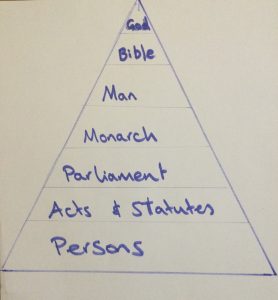
For more on how people became represented as persons see my Article #5 – How You Became Entangled In The Legal System for a deeper dive in to this subject.
In this article I have laid out the very basics of how law and governance is set up in a country, and its associated landmass. I have shown you the two main jurisdictions, and I have shown you what it is that each jurisdiction has control over, and who the law maker is on each side. For more information about these two jurisdictions take a look at Article #6
If you feel that others would benefit from reading this article, please consider sharing it. If you would like to find out more about law and governance then you can start by reading my articles in ascending numerical order which will garner the best results for you.
More articles on Law and Governance can be read from the menu below.
If you feel like buying me a coffee, or making a donation, that would be greatly appreciated.
In good faith
CME